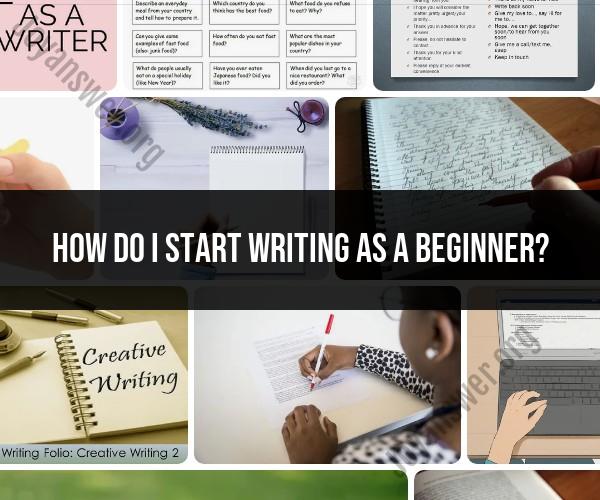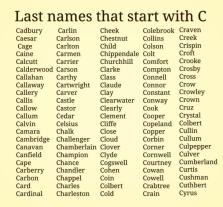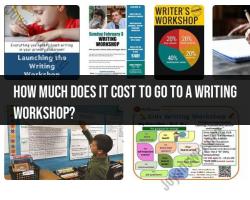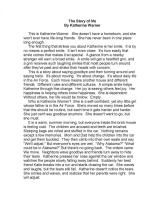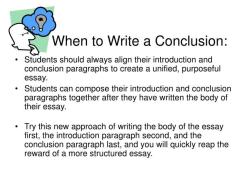How do I start writing as a beginner?
Starting your writing journey as a beginner can be both exciting and challenging. Whether you're interested in fiction, nonfiction, poetry, or any other form of writing, here are some tips to help you begin:
1. Define Your Writing Goals:
- Clarify why you want to write. Are you interested in storytelling, self-expression, or sharing information? Knowing your goals will guide your writing path.
2. Read Widely and Actively:
- Read a variety of genres and styles. Pay attention to how authors craft their sentences, develop characters, and create engaging plots. Analyze what you enjoy in the writing of others.
3. Start Small:
- Begin with short pieces. Short stories, essays, or poems are excellent starting points. They allow you to experiment with different ideas without committing to a lengthy project.
4. Establish a Writing Routine:
- Set aside dedicated time for writing regularly. Consistency is key to developing your skills. Whether it's 15 minutes a day or an hour a week, create a routine that works for you.
5. Experiment with Genres:
- Try writing in different genres to discover what you enjoy most. Explore fiction, nonfiction, poetry, or a combination of these. Don't be afraid to step out of your comfort zone.
6. Keep a Writing Journal:
- Carry a notebook or use a digital tool to jot down ideas, observations, or snippets of dialogue. Your daily experiences can inspire your writing.
7. Join Writing Communities:
- Connect with other writers online or in local writing groups. Sharing your work and receiving feedback can be valuable for growth. Learn from others and offer your insights as well.
8. Embrace the Editing Process:
- Understand that first drafts are meant to be rough. Editing is a crucial part of writing. Be open to revising and refining your work.
9. Find Your Writing Space:
- Create a comfortable and inspiring writing space. It could be a quiet corner, a cozy café, or a dedicated room. Your writing environment can impact your creativity.
10. Seek Feedback:
- Share your work with trusted friends, family, or writing groups. Constructive feedback can provide valuable insights and help you improve.
11. Read Writing Craft Books:
- Explore books on writing to learn about storytelling techniques, character development, and the writing process. Stephen King's "On Writing" and Anne Lamott's "Bird by Bird" are popular choices.
12. Celebrate Small Achievements:
- Acknowledge and celebrate your progress. Completing a draft, receiving positive feedback, or overcoming a writing challenge are all accomplishments worth recognizing.
13. Set Realistic Goals:
- Define achievable writing goals. Whether it's completing a certain number of words per day or finishing a short story by the end of the month, set targets that motivate you.
14. Be Patient and Persistent:
- Writing is a journey that requires patience and persistence. Don't be discouraged by challenges or initial difficulties. Keep writing and learning.
15. Enjoy the Process:
- Writing is a creative and fulfilling endeavor. Enjoy the process of expressing yourself and bringing your ideas to life. Embrace the joy of writing.
Remember that every writer begins as a beginner, and improvement comes with practice and dedication. Allow yourself the freedom to explore and grow as a writer, and don't be afraid to take risks and make mistakes along the way. Writing is a personal and evolving journey, so savor the experience and enjoy the adventure of discovering your unique voice.
What steps can a beginner take to start writing?
Taking the first step into the world of creative writing can be both exciting and daunting. But fear not, aspiring author! Here are some helpful steps to guide you on your journey:
1. Spark your creativity:
- Read widely: Immerse yourself in different genres and styles. See how other writers approach storytelling and find inspiration.
- Keep a journal: Jot down ideas, snippets of dialogue, or simply observations from your daily life. This is your safe space to experiment and brainstorm.
- Engage in creative exercises: Try freewriting, character interviews, sensory prompts, or random word collages. These activities can spark unexpected ideas and break writer's block.
2. Develop your skills:
- Master the basics: Brush up on grammar, punctuation, and sentence structure. These are the building blocks of clear and effective writing.
- Explore storytelling techniques: Learn about plot, character development, setting, and point of view. Understanding these elements will strengthen your narratives.
- Take a writing course or workshop: Find beginner-friendly programs that offer guidance and feedback. Online platforms, local libraries, and community centers often have options.
3. Start small and build momentum:
- Don't aim for a novel right away: Begin with short stories, poems, or flash fiction. These shorter forms allow you to practice and experiment without feeling overwhelmed.
- Write consistently: Schedule writing time and stick to it, even if it's just for 15 minutes a day. Regular practice builds discipline and helps you find your rhythm.
- Revise and refine: Don't be afraid to edit and rewrite your work. The first draft is just a starting point. Seek feedback from trusted friends, family, or writing groups.
4. Find your voice and genre:
- Experiment with different styles: Write from different points of view, play with humor or suspense, try your hand at different genres. Discover what resonates with you.
- Read books and articles in your chosen genre: Analyze what makes them work and see how you can adapt those elements to your own writing.
- Don't be afraid to be unique: Embrace your individuality and let your personal voice shine through your writing.
5. Connect with the writing community:
- Join writing groups or online forums: Share your work, get feedback, and learn from others.
- Attend writing events and workshops: These can be great opportunities to network with other writers and expand your knowledge.
- Follow established authors and writing platforms: Get inspiration and advice from those who have come before you.
Remember, becoming a writer is a journey, not a destination. Be patient, keep practicing, and most importantly, have fun! Enjoy the process of exploring your creativity and finding your voice. With dedication and passion, you can craft stories that leave your mark on the world.
I hope these steps help you on your writing journey! Don't hesitate to ask if you have any further questions or need specific advice. Happy writing!
